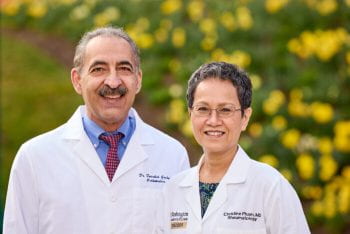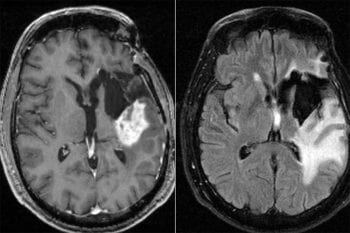Scopus list of Hope Center faculty members’ publications for the week of March 9, 2025
Tag: Erik Herzog
Hope Center Member Publications: March 2, 2025
Scopus list of Hope Center faculty members’ publications for the week of March 2, 2025
WashU Expert: The disruptions of daylight saving time

A one-hour adjustment to the clock on the wall may not sound dramatic. But our biological clock begs to differ. On Sunday, March 9, at 2 a.m. local time, the U.S. “springs forward,” moving the clocks ahead one hour as we enter daylight saving time. Most of us need a few days to adjust to […]
Engineering better sleep

Complex biological networks control a range of functions in the human body from metabolic processes to the sleep cycle. Though scientists have ever-increasing volumes of data about the effects these complex systems produce, fully describing them mathematically has proven difficult. Without a firm understanding, effective interventions continue to be elusive, leaving more than 50 million […]
Brain tumors hijack circadian clock to grow

Virtually every cell in the human body has an internal clock. These clocks take their cues from a central clock in the brain. In a normal, biological process called synchrony, the central clock coordinates daily rhythms around the body, so that every cell and tissue recognizes the same external time of day. Knowing local time […]
Hope Center Member Publications: November 3, 2024
Scopus list of Hope Center faculty members’ publications for the week of November 3, 2024
Hope Center Member Publications: August 4, 2024
Scopus list of Hope Center faculty members’ publications for the week of August 4, 2024
Daily rhythms depend on receptor density in biological clock

mans and other animals, signals from a central circadian clock in the brain generate the seasonal and daily rhythms of life. They help the body to prepare for expected changes in the environment and also optimize when to sleep, eat and do other daily activities. Scientists at Washington University in St. Louis are working out […]
Chemo for glioblastoma enhanced by tapping into cell’s daily rhythms

Study reveals mechanism for why treatment appears to work better in the morning
Award of up to $31 million supports development of osteoarthritis treatment

Researchers aim to create treatment that promotes tissue regeneration, restores joints
Hope Center Member Publications: February 4, 2024
Scopus list of publications for February 4, 2024
Hope Center Member Publications: December 10, 2023
Scopus list of Hope Center faculty members’ publications for the week of December 10, 2023
Hope Center Member Publications: November 26, 2023
Scopus list of publications for November 26, 2023
Hope Center Member Publications: October 22, 2023
Scopus list of publications for October 22, 2023
Hope Center Member Publications: August 13, 2023
Scopus list of publications for August 13, 2023
Hope Center Member Publications

Scopus list of publications for June 4, 2023
Hope Center Member Publications

Scopus list of publications for December 5, 2022
Herzog installed as Viktor Hamburger Distinguished Professor

Installation talk, titled “For Whom the Bells Toll: Networked Circadian Clocks and Clock Watchers”
Hope Center Member Publications

Scopus list of publications for September 4, 2022
Hope Center Member Publications: July 18, 2022
Scopus list of Hope Center faculty members’ publications for the week of July 18, 2022
Hope Center Member Publications

List of publications for June 20, 2022
Hope Center member publications

List of publications for week of May 19, 2022
Hope Center member publications

List of publications for the week of October 18, 2021
‘Fight or flight’ – unless internal clocks are disrupted, study in mice shows

For humans and animals, many aspects of normal behavior and physiology rely on the proper functioning of the body’s circadian clocks.
Hope Center member publications: August 23, 2021
Scopus list of Hope Center faculty members’ publications for the week of August 23, 2021
Chemo for glioblastoma may work better in morning than evening

Study indicates timing of chemotherapy could improve treatment for deadly brain cancer